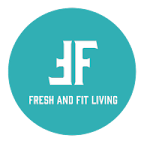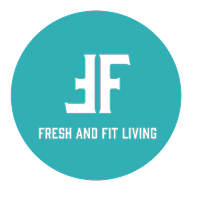Intermittent fasting has gained popularity as an effective approach for improving health and promoting weight management. For women over 50, this dietary pattern can offer numerous benefits. However, it's crucial to consider the specific considerations and adjustments needed for this age group. In this comprehensive guide, we will explore the key points of intermittent fasting for women over 50, including the potential benefits, adjustments to fasting schedules, nutritional considerations, hydration, monitoring body's response, exercise, and more.
 |
| See on Amazon |
Benefits of Intermittent Fasting for Women Over 50: Intermittent fasting offers several potential benefits for women over 50. Research suggests that it may support weight management, improve insulin sensitivity, enhance cellular repair processes, and reduce inflammation. Additionally, intermittent fasting can promote cardiovascular health, improve brain function, and potentially extend lifespan. However, it's important to note that individual results may vary, and consulting with a healthcare professional is crucial before starting any new dietary regimen.
Adjusting Fasting Schedules for Women Over 50: As women enter menopause, hormonal changes can affect metabolism. Therefore, it's important to adapt fasting schedules to suit individual needs. Experimenting with different fasting and eating windows can help find the most effective approach. Some common fasting schedules include the 16/8 method (fasting for 16 hours and eating within an 8-hour window) or the 5:2 method (eating normally for 5 days and restricting calorie intake on 2 non-consecutive days). It's important to listen to your body and adjust the fasting schedule accordingly.
Nourishing Your Body during Eating Windows: Proper nutrition is crucial, especially as we age. During the eating windows, focus on consuming a well-balanced diet that includes a variety of nutrient-rich foods. Emphasize fruits, vegetables, lean proteins, whole grains, and healthy fats. These foods provide essential vitamins, minerals, and antioxidants necessary for overall health. Consider incorporating superfoods like berries, leafy greens, and fatty fish for their anti-aging and health-promoting properties.
Hydration for Optimal Health: Adequate hydration is essential at any age. During intermittent fasting, it's important to stay hydrated both during fasting and eating windows. Water is the best choice, but herbal teas, infused water, and unsweetened beverages can also contribute to hydration. Avoid excessive consumption of sugary drinks and caffeinated beverages, as they can have dehydrating effects. Aim to drink at least 8 glasses (64 ounces) of water per day, adjusting as needed based on activity level and climate.
Monitoring Your Body's Response: While intermittent fasting can be beneficial, it's crucial to pay attention to your body's response. If you experience dizziness, weakness, extreme hunger, or any other negative side effects, it may indicate that the fasting approach needs adjustment. Remember, each person is unique, and what works for one may not work for another. Consulting with a healthcare professional or a registered dietitian can provide personalized guidance based on your specific needs and health circumstances.
Exercise and Physical Activity: Regular exercise is vital for maintaining overall health and complementing intermittent fasting. Engaging in a combination of cardiovascular exercise, strength training, and flexibility exercises can support your fitness goals. Consider activities such as brisk walking, swimming, cycling, yoga, or weightlifting. However, it's important to listen to your body and choose exercises that are appropriate for your fitness level. Consult with a healthcare professional or a certified fitness trainer to design an exercise plan that suits your needs.





.png)







0 Comments